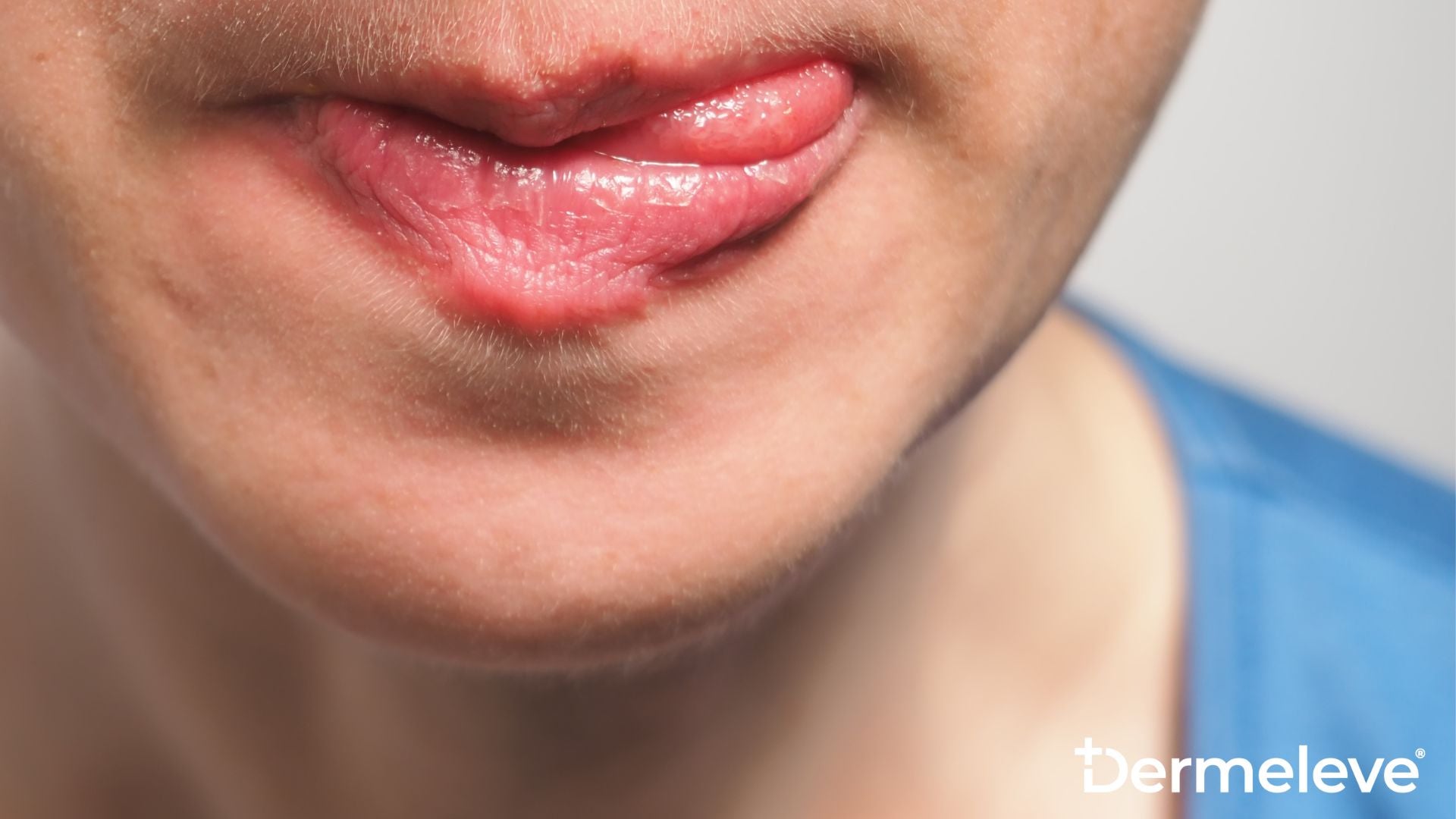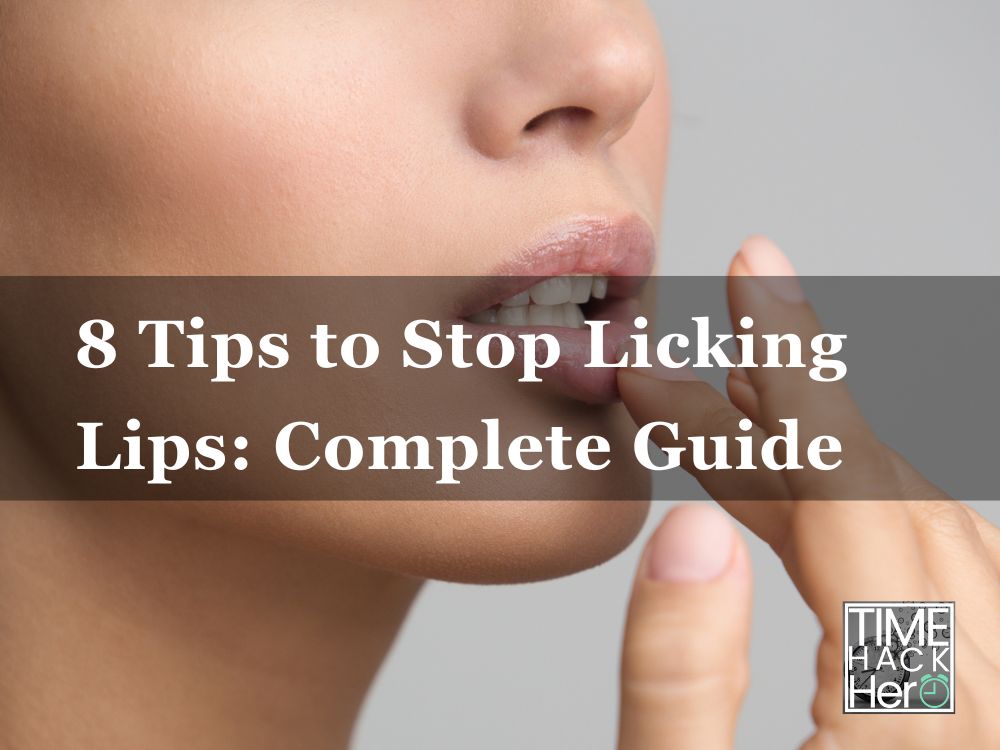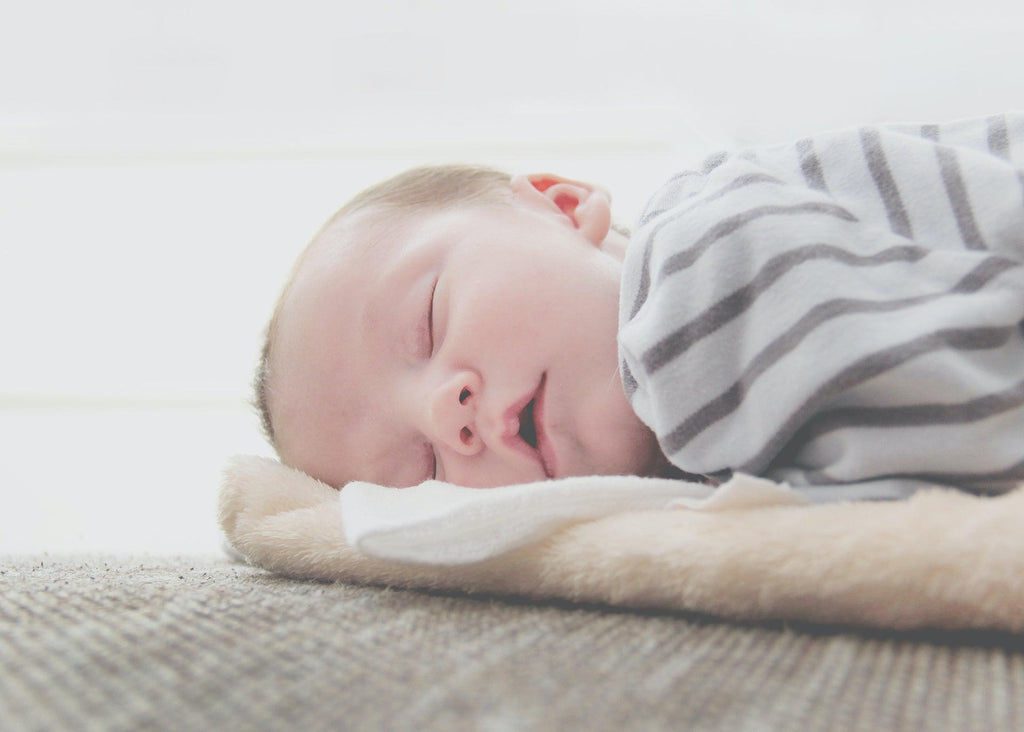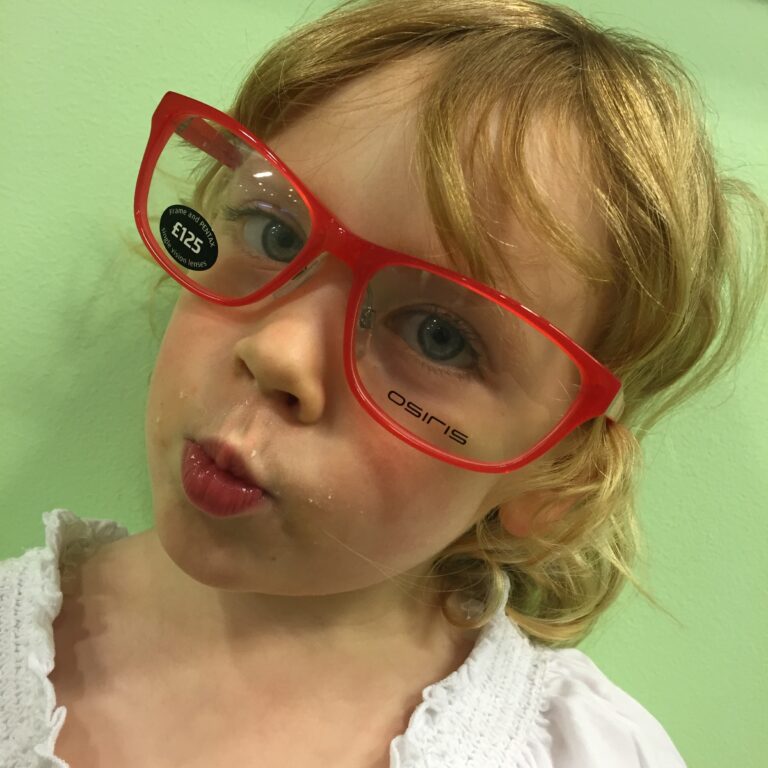How to Get a Child to Stop Licking Their Lips: Effective Strategies
To get a child to stop licking their lips, offer lip balm or soothing cream as a distraction and to improve the lips’ health. Provide support and encouragement to the child if they express frustration or unhappiness about the habit, and offer a hug for comfort.
Understanding The Habit Of Lip Licking In Children
Understanding the habit of lip licking in children can help parents address how to get a child to stop licking their lips. Providing distractions like lip balm or soothing cream, offering support and encouragement, and addressing potential underlying causes like anxiety can be effective strategies in breaking this habit.
What Is Lip Licking And Why Do Children Do It?
Lip licking is a common habit often observed in children. It refers to the act of repeatedly running the tongue over the lips, which can lead to dryness, chapping, and even lip licker’s dermatitis. Children engage in this behavior for various reasons.
Potential Causes And Triggers For Lip Licking In Children
There can be several causes and triggers for lip licking in children, including:
- Dryness: Harsh weather conditions, chronic dryness, or even nasal congestion leading to mouth-breathing can cause children to lick their lips in an attempt to alleviate discomfort.
- Anxiety or nervousness: Some children develop a lip licking habit as a way to cope with anxiety or nervousness. It becomes a soothing mechanism for them.
- Habitual behavior: Lip licking can become a habit through repetition. Children may lick their lips out of boredom or as a reaction to certain stimuli.
- Cognitive impairments: Children with cognitive impairments may have difficulty regulating impulsive behaviors, including lip licking. They may find it challenging to control the urge to lick their lips.
Exploring The Effects Of Excessive Lip Licking
Excessive lip licking can have negative effects on children’s overall lip health. Some of the effects include:
- Dryness and chapping: Frequent lip licking removes the natural oils from the lips, leading to dryness and chapping.
- Lip licker’s dermatitis: Continuous lip licking can result in a condition called lip licker’s dermatitis, characterized by redness, inflammation, and soreness around the lips.
- Social impact: Persistently licking the lips may draw unwanted attention from peers, causing children to feel self-conscious or embarrassed.
To help children stop the habit of lip licking and prevent its negative effects, it is important to address the underlying causes and provide appropriate strategies for intervention.

Credit: dermeleve.com
The Negative Consequences Of Lip Licking In Children
Lip licking in children can have negative consequences such as lip licker’s dermatitis. To help your child stop licking their lips, offer distractions like lip balm or soothing cream, provide support and encouragement, and try to address any underlying anxiety or nervousness.
The Impact Of Lip Licking On The Lips And Surrounding Skin
Lip licking seems like a harmless habit, but it can have negative consequences, especially for children. Constantly licking the lips can lead to dryness, chapping, and cracking. The moisture from the saliva evaporates quickly, leaving the lips even drier than before. This can make the lips sensitive and prone to discomfort and irritation.
Potential Oral Health Issues Associated With Lip Licking
In addition to affecting the lips, lip licking can also have an impact on oral health. When a child licks their lips excessively, the saliva can end up on the teeth and gums. Over time, this can contribute to tooth decay and gum disease. Saliva contains enzymes and bacteria that, when left on the teeth and gums, can cause damage and lead to oral health issues.
How Lip Licking Can Lead To Lip Licker’s Dermatitis And Other Skin Problems
One of the most concerning consequences of lip licking is the development of lip licker’s dermatitis. When the lips are constantly wet from saliva, the skin can become inflamed, red, and irritated. This condition can be uncomfortable and unsightly, making it difficult for children to feel confident in their appearance. In some cases, frequent lip licking can even lead to other skin problems, such as infections or eczema.
To prevent these negative consequences, it’s important to address the habit of lip licking in children. Encouraging them to apply lip balm or soothing cream regularly can provide relief and distraction from the urge to lick their lips. Remember not to punish the behavior but instead offer support and understanding. Diverting their attention during stressful situations and keeping them hydrated with water can also help break the habit.
Effective Strategies To Help Children Stop Licking Their Lips
If you have noticed that your child has developed a habit of constantly licking their lips, it is important to address this behavior as it can have negative effects on their skin and overall well-being. By implementing these effective strategies, you can help your child break the habit of lip licking and promote healthier lip care. Let’s explore some helpful techniques:
Identifying And Addressing Any Underlying Causes Or Triggers
First and foremost, it is crucial to identify and address any underlying causes or triggers that may be contributing to your child’s lip licking habit. Explore potential factors such as dry or chapped lips, anxiety, or even a sensory response to lip texture. By understanding the root cause, you can better tailor your approach to help your child overcome this behavior.
Encouraging Alternative Behaviors To Replace Lip Licking
Instead of criticizing your child for lip licking, encourage them to engage in alternative behaviors that can replace this habit. Provide them with a nourishing lip balm or soothing cream and teach them to apply it whenever they feel the urge to lick their lips. This serves as a distraction while simultaneously improving the health and moisture of their lips, making them less likely to resort to lip licking.
Providing Education And Awareness For The Child About The Negative Effects Of Lip Licking
Educating your child about the negative effects of lip licking can help them understand why this habit should be avoided. Explain to them how excessive lip licking can lead to dryness, chapping, and even skin irritation. Emphasize the importance of maintaining good lip care habits and the benefits of finding alternative ways to moisturize their lips.
Creating A Supportive Environment And Offering Positive Reinforcement
Creating a supportive environment for your child is crucial in helping them break the habit of lip licking. Instead of punishing or criticizing their behavior, offer understanding, patience, and positive reinforcement. Praise them when they successfully avoid lip licking and provide them with small rewards or incentives to further motivate them in their progress.
Using Lip Treatments And Barrier Creams To Soothe And Protect The Lips
Consider using lip treatments and barrier creams to soothe and protect your child’s lips. Look for products specifically designed for sensitive skin that can provide hydration and create a barrier against external factors that may trigger lip licking. Applying these treatments regularly can help alleviate discomfort and minimize the temptation to lick their lips.
By implementing these effective strategies and maintaining a consistent approach, you can help your child break the habit of lip licking and promote healthier lip care habits. Remember, patience and understanding are key in supporting your child through this process.
Additional Tips And Techniques To Stop Lip Licking
To help your child stop lip licking, offer distractions such as lip balm or soothing cream for them to apply. Encourage and support them, offering hugs and words of encouragement. Consider providing sugar-free candies or diverting their attention during stressful situations.
Choosing The Right Lip Balm Or Lip Treatment For The Child
When it comes to stopping lip licking, choosing the right lip balm or lip treatment for your child is crucial. Look for products that are specifically formulated for children and are free from harsh chemicals and fragrances. Opt for a nourishing lip balm or lip oil that provides hydration and creates a protective barrier on the lips to prevent excessive licking. Additionally, consider consulting with a pediatrician or dermatologist to ensure you are choosing the most suitable product for your child’s specific needs.
Establishing A Consistent Lip Care Routine
Establishing a consistent lip care routine is key in getting your child to stop licking their lips. Make it a habit for your child to apply lip balm or lip treatment regularly throughout the day, especially before going outside or during dry weather conditions. Teach them the importance of taking care of their lips and encourage them to be proactive in maintaining their lip health. By incorporating a lip care routine into their daily activities, you can help break the habit of lip licking.
Educating The Child On The Importance Of Hydration For Healthy Lips
One effective way to discourage lip licking is by educating your child on the importance of hydration for healthy lips. Explain to them that licking their lips can actually make them drier and more susceptible to chapping and cracking. Teach them about the role of moisture in keeping the lips soft and supple, and encourage them to drink plenty of water throughout the day to stay hydrated. By emphasizing the benefits of staying hydrated and the negative effects of lip licking, you can motivate your child to break the habit.
Implementing Reminders And Visual Cues To Discourage Lip Licking
Implementing reminders and visual cues can be helpful in discouraging your child from lip licking. Place small sticky notes or stickers on surfaces that your child frequently touches, such as their desk, mirror, or water bottle, reminding them to avoid licking their lips. You can also create a visual chart or checklist that they can mark off every time they resist the urge to lick their lips. These reminders and visual cues serve as gentle prompts for your child to break the habit and redirect their behavior.
Seeking Professional Help If The Habit Persists Or Causes Severe Issues
If your child’s lip licking habit persists or causes severe issues like lip licker’s dermatitis, it is important to seek professional help. Reach out to a pediatrician or dermatologist who specializes in skin conditions to evaluate your child’s lips and provide appropriate guidance and treatment. They can help determine the underlying cause of the habit and offer solutions tailored to your child’s specific needs. Remember, seeking professional help is crucial to ensure the health and well-being of your child.
Frequently Asked Questions For How To Get A Child To Stop Licking Their Lips
Why Does My Child Keep Licking His Lips?
Children may lick their lips due to a condition called lip licker’s dermatitis, common in kids with cognitive impairments. It can also be a response to anxiety or nervousness. To break the habit, offer distractions like lip balm or soothing cream and provide support and encouragement.
How Do You Break A Lip-licking Habit For Kids?
To break a lip-licking habit for kids: 1. Provide lip balm or soothing cream as a distraction. 2. Offer support and encouragement to the child. 3. Divert their attention during stressful situations. 4. Hydrate their lips by offering water regularly. 5.
Give sugar-free candies as an alternative.
How Do I Stop Compulsive Lip-licking?
To stop compulsive lip-licking, try the following tips: 1. Use a nourishing lip balm or lip oil. 2. Develop a consistent lip care routine. 3. Wear lip gloss or lipstick to distract from licking. 4. Chew sugar-free gum as an alternative.
5. Keep a humidifier nearby to prevent dryness. Excessive lip-licking may be caused by weather conditions, anxiety, dryness, or nasal congestion. Seek professional help if needed.
What Causes Excessive Lip-licking?
Excessive lip-licking can be caused by factors such as harsh weather conditions, sunburn, anxiety, chronic dryness, and chronic nasal congestion. To stop the habit, try using nourishing lip balm, lip oil, or lip gloss, revamp your lip care routine, chew gum, and keep a humidifier handy.
Conclusion
Breaking the habit of a child licking their lips can be challenging, but with some patience and supportive strategies, it is possible. Offering distractions, such as lip balm or soothing cream, can help redirect their focus and improve the health of their lips.
Remember to provide encouragement and understanding to your child during this process, as it may take time for them to break the habit completely. By implementing these tips, you can help your child stop licking their lips and promote their overall oral health.








